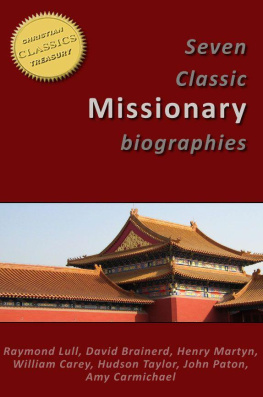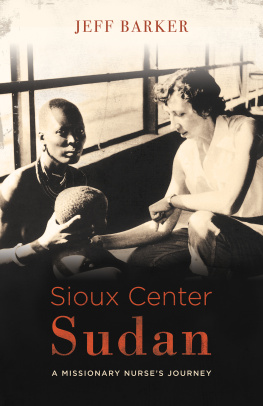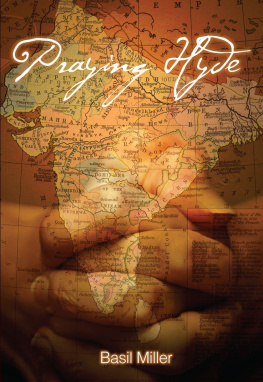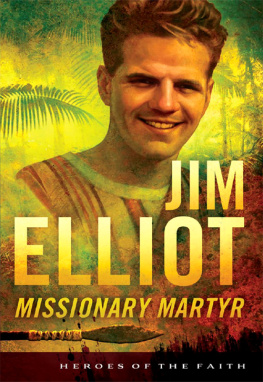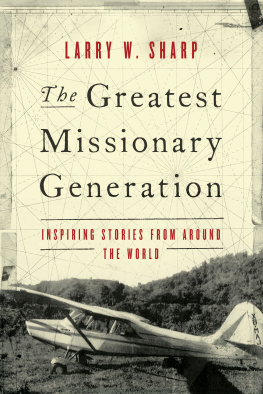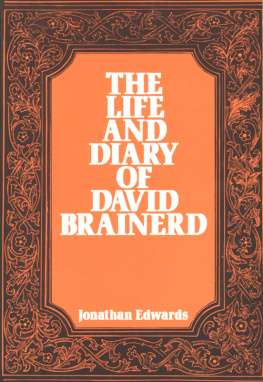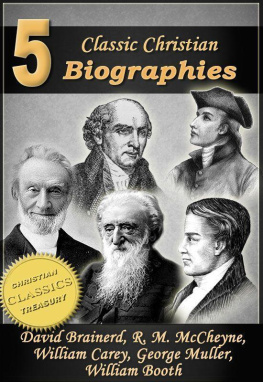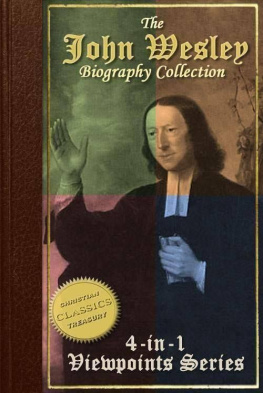From the Editor
To navigate this large collection you can use the Quick Table of Contents at the beginning; or you can access the full Table of Contents at any time by choosing MENU > GO TO > TABLE OF CONTENTS on your eReader. You can also skip chapters by swiping up or down (newer versions) or pressing the forward > or backward < key on the 4-way controller in older versions.
If you have been blessed by this volume, you may also be interested in some of our other Christian Classics Treasury collections:
MISSIONS COLLECTIONS:
- Amy Carmichael 8-in-1
- The Hudson Taylor Collection (7-in-1)
- David Livingstone Collection (5-in-1)
- Samuel Zwemer 7-in-1 (Missions in Arabia)
- Samuel Zwemer, 7-in-1, Vol 2
- Key to the Missionary Problem ( Andrew Murray )
- Classic Missions Texts ( Murray, Allen, Carey, Zwemer )
CLASSIC COLLECTIONS:
- 7 Catholic Classics
- 7 Classics on PRAYER
- 7 Classics on HOLINESS
- 7 Classics on EVANGELISM and SOUL-WINNING
- 5 Classics on the HOLY SPIRIT
- 5 Classics on POWER
- EDERSHEIM COLLECTION (Sketches of Jewish Social Life; The Temple; Jesus the Messiah)
- The Didache (Teaching of the 12 Apostles)
PREACHERS AND REVIVALISTS:
- Biography of John Wesley Collection: 4-in-1
- Biography of Andrew Murray
- Charles Spurgeon: 40 sermons on Prayer
- Charles Spurgeon: Lectures to My Students
- The George Muller Collection
- The Revival Writings of Jonathan Edwards (7-in-1)
- The Works of Catherine Booth (7-in-1)
- The Works of Charles Finney
- The Works of D. L. Moody
- The Works of R. A. Torrey
- The Works of William Booth
QUICK TABLE OF CONTENTS:
1. RAYMOND LULL - FIRST MISSIONARY TO THE MUSLIMS (d. 1315)
By Samuel Zwemer
1902
---
INTRODUCTION
IT would be difficult to find another so competent as Dr. Zwemer to write a life of the first great missionary to the Mohammedans. For twelve years he has been working with his associates of the Arabian Mission of the Reformed Church on the eastern coast of the Arabian peninsula and in the Turkish region northwest of the Persian Gulf. To an almost perfect command of Arabic, an accurate knowledge of the Koran, untiring zeal and indomitable courage, he has added an absorbing love for the Mohammedans, and a desire to make known to them in truth that Savior whom in their belief their prophet annuls and supersedes.
As I passed down the Persian Gulf in the spring of 1897, the captains of the steamers, without qualification, spoke out in praise of the "lion-hearted" missionary, as they called him, who would sit on the hatches with the Arab travelers and confound them out of their own scriptures. In the interval of itinerating journeys into the interior of El Rasa and Oman Dr. Zwemer has found time to produce a volume on Arabia (published in 1900), which is the standard authority on the peninsula, and one of the best books available on the questions of interest to all Christians springing from the rise and extension of Islam. Loving the Mohammedans and knowing their religion thoroughly, and working constantly for an enlargement of the missionary force attempting the evangelization of the Moslem world, Dr. Zwemer has qualifications for understanding the life of Raymund Lull, and for describing it sympathetically, which few possess in the same measure.
And there has been great need that an adequate life of Raymund Lull should be written for English readers of this modern day. He was the greatest missionary who has ever gone out to the Moslem world. He was one of the outstanding figures of the Catholic Church in the thirteenth century. He was a Christian of the modern spirit of Catholicity - neither Roman nor Protestant - a man of spiritual judgment, of divine love. He saw the futility of authority in matters of religion at the time that other men were busy with the most devilish expression of belief in authority ever conceived - the Inquisition. He loved Christ with a passionate love, and saw that the only true missionary method was the method of love. To leave his life in obscurity would involve an incalculable loss to the Church of our time. We need to revive the memory of it, to relearn its secrets, and to confirm the highest Christian tendencies of our day by the recollection of their noble illustration in the life of Lull. Of all the men of his century of whom we know, Raymund Lull was most possessed by the love and life of Christ, and most eager, accordingly, to share his possession with the world. The world sadly needed it; the Church scarcely less. It sets forth the greatness of Lull's character the more strikingly to see how sharply he rose above the world and Church of his day anticipating by many centuries moral standards, intellectual conceptions, and missionary ambitions, to which we have grown only slowly since the Reformation.
The movement of our thought, theological and philosophical, is now strongly toward biological conceptions. It is a gain that it should be so. We see that life is the supreme thing, and that we must state our notions in its terms. The missionary work will gain greatly by this new mode of thinking. Its purpose is to give life. Its method is to do by the contact of life. Raymund Lull proved this. He went out to give a divine life which he already possessed in his own soul. Somerville, in "St. Paul's Conception of Christ," points out that it was "in the consciousness of what the glorified Christ was to Paul in his personal life that we are to look for the genesis of his theology." It was in his inner experience of the glorified Christ that we are to look for the secret and source of Raymund Lull's doctrine and life: what he thought, what he was, what he suffered. And this must be true of all true missionaries. They do not go out to Asia and Africa to say, "This is the doctrine of the Christian Church," or "Your science is bad. Look through this microscope and see for yourselves and abandon such error," or "Compare your condition with that of America and see how much more socially beneficial Christianity is than Hinduism, or Confucianism, or fetichism, or Islam." Doubtless all this has its place the argument from the coherence of Christianity with the facts of the universe, the argument from fruit. But it is also secondary. The primary thing is personal testimony. "This I have felt. This Christ has done it for me. I preach whom I know. That which was from the beginning, that which I have heard, that which I have seen with my eyes, that which I beheld and my hands handled, concerning the Word of life (and the life was manifested, and I have seen, and bear witness, and declare unto you the life, the eternal life, which was with the Father and was manifested unto me), that which I have seen and heard declare I unto you also, that ye also may have fellowship with me; yea and my fellowship is with the Father and with His Son, Jesus Christ." The man who cannot say this may be able to change the opinions of those to whom he goes, to improve their social condition, to free them from many foolish errors and enslaving superstitions, but after all this, the one thing which, if done, would of itself have attended to these things and a thousand others, may be still unaccomplished - namely, the gift of life. The missionary who would do Paul's work or Lull's must be able to preach a living Christ, tested in experience, saved from all pantheistic error by the Incarnation and the roots thus sunk in history, and by the Resurrection and the personality thus preserved in God above, but a Christ here and known, lived and ready to be given by life to death, that death may become life.
It would be easy to draw other parallels than this between Paul and Lull: their conversions, their subsequent times of separation, their visions, their untiring toil, their passion for Christ, their sufferings and shipwrecks, their intellectual activity and power, their martyrdoms, the rule of Christ supreme thus in death, supreme also in life, its thought, its purpose, its taste, its use, its friends, its sacrifice. But the essence of all such comparison - the real essence of all true missionary character - is the possession by the life of Christ as life, and the ability thus to give, not a new doctrine only, not a new truth to men, but a new life The work of missions is just this: the going out from the Church over the world of a body of men and wornen knowing Christ, and, therefore, having life in themselves; their quiet residence among the dead peoples; and the resurrection from among these peoples of first one, then a few, then more and more, who feel the life and receive it and live. Lull sought in every way to fit himself for contact with men so that he might reach them in the deepest intimacies of their life, and be able thus to plant the seed of the divine life which he bore. Therefore he learned Arabic, became a master of the Moslem philosophy, studied geography and the heart of man. And, therefore, he became also a student of comparative religion, as we would call him today. There was a great difference between his view, however, and that of a large school of modern students of comparative religion. Lull had no idea that Christianity was not a complete and sufficient religion. He did not study other religions with the purpose of providing from them ideals which Christianity was supposed to lack. Nor did he propose to reduce out of all religions a common fund of general principles more or less to be found in all and regard these as the ultimate religion. He studied other religions to find out how better to reach the hearts of their adherents with the Gospel, itself perfect and complete, lacking nothing, needing nothing from any other doctrine. With him there was a difference between Christianity and other religions, not in degree only, but in kind. It possesses what they lack, which is desirable. It lacks what they possess which is unworthy. It alone satisfies. It alone is life. They are systems of society or politics, religions of books, methods, organizations. It and it alone is life, eternal life. Lull studied other religions, not to discover what they have to give to Christianity, for they have nothing, but to find how he might give to those who follow them the true life, which is life, and which no man shall ever find until he finds it in Christ.
Next page
